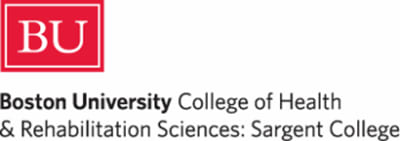
Bachelor of Science in Nutrition
Boston University - College of Health & Rehabilitation Sciences: Sargent College

Key Information
Campus location
Boston, USA
Languages
English
Study format
On-Campus
Duration
Request info
Pace
Full time
Tuition fees
Request info
Application deadline
Request info
Earliest start date
Sep 2023
Scholarships
Explore scholarship opportunities to help fund your studies
Introduction
Opportunities for you in the field of nutrition have never been better or more diverse. With health care costs rising and the relationship between diet and health firmly established, nutrition careers in the medical field, the community, the food industry, and private practice continue to grow in numbers.
Wherever you choose to pursue your career, the BS in Nutrition program at Boston University will help you succeed. You will have all the advantages of a small program within a large research university: small classes with great discussions, a close-knit student and faculty community, and lots of individual attention.
By selecting the optional undergraduate practicum experience, you will be connected with – and learn directly from – nutrition professionals who work in community health, nutrition communications, and clinical nutrition settings. You will find other possibilities through the Nutrition Club—speakers, cooking classes, and more.
Sargent College’s Nutrition program offers you three tracks, each of which includes a broad background in the biological, chemical, and nutrition sciences.
The Nutrition Science Track will give you strong academic preparation for medical, dental, veterinary school, or graduate school in any life sciences. You can also go directly into entry-level employment in the biomedical sciences.
The Dietetics Track will prepare you to become a Registered Dietitian Nutritionist, a credential required for jobs involving the provision of Medical Nutrition Therapy to individuals in healthcare settings.
The Nutrition & Health Track will prepare you for a career that combines nutrition with global/public health, mass communications, exercising populations, nutrition behaviour, or you have the option to create your area of concentration.
The achievement of specific learning outcomes guides our curriculum. After the program, students will be able to:
Recall basic food and nutrition information.
Describe and evaluate their experience of providing nutrition care in a community setting.
Evaluate the quality of research articles published in peer-reviewed journals.
With a bachelor of science degree in Nutrition, Nutrition Science track, you can:
apply to medical, dental, or veterinary school
apply to a graduate program in any of the life sciences or in public health
pursue entry-level employment in the biomedical sciences, education, public health, or the pharmaceutical or communications industries
With a bachelor of science degree in Nutrition, Dietetics track, you can earn the Registered Dietitian Nutritionist credential and then pursue employment in:
hospitals (inpatient and outpatient care)
private practice
public health
education
consulting to sports teams, restaurants, and corporations
food service management
communications
Or, you might continue your education in graduate school for a career in nutrition or public health.
A bachelor of science degree in Nutrition, Nutrition & Health track will prepare you for a career that combines nutrition with public/global health, mass communications, nutrition for exercising populations, nutrition, and health promotion. The curriculum includes courses in basic science, nutrition, food, and courses in an area of concentration. Career opportunities include:
public relations agencies
business
public health organizations
media outlets
food industries
health and fitness centres